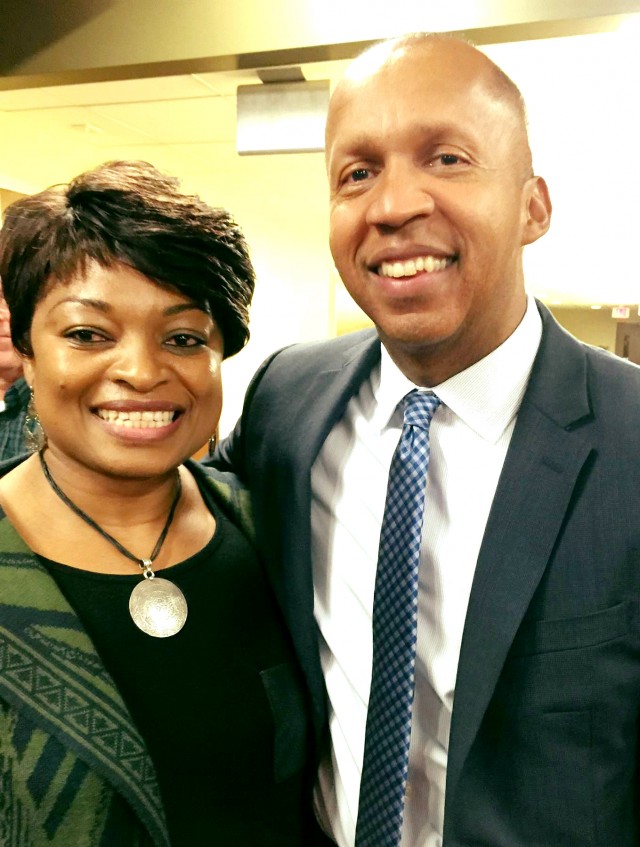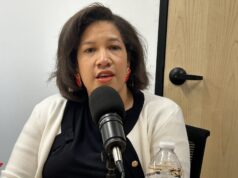Restorative justice lawyer and social activist Bryan Stevenson spoke in Varsity Hall at Union South on the University of Wisconsin-Madison Oct. 26 on his experiences representing offenders on death row as part of the annual Go Big Read event.
Go Big Read is the university’s common-book program in which students, staff, and faculty across campus read and study the same selection. This year’s book is Stevenson’s New York Times best-seller Just Mercy: A Story of Justice and Redemption, which speaks to the current state of mass incarceration in the United States and the justice disparities men of color face on death row. More than 170 courses are using the book this semester, in disciplines including business, education, English, history, law, nursing, political science and social work.
Stevenson is the founder of the Equal Justice Initiative, an organization that fights poverty and challenges racial discrimination in the criminal justice system. 
Stevenson proposed that the ways to transform the criminal justice system include, but are not limited to, being proximate to the communities we wish to serve, changing the narrative of marginalized groups, staying hopeful, and doing uncomfortable things that will challenge the systems. He shared examples of lawyers in his own childhood community that played such a critical role in him having the opportunity to attend an integrated public school.
“I have not forgotten the fact that it was the choice of these lawyers to get proximate to poor kids like me in a rural black southern community that allowed me to go to public school,” said Stevenson.
Stevenson’s talk filled the Varsity Hall to capacity and was streamed live and captioned on the Go Big Read website. Attendees came from as far as Illinois to hear from the best-selling author, an increase from the turnout of the Go Big Read talk from last year.
Cousins Lena and Heba Ali, both juniors and students of color at UW, thought Stevenson’s talk was well needed to initiate discussions on race on the predominantly white campus.
“I feel like Bryan Stevenson really presented valid points on racial inequality and institutionalized racism. I’m hoping in classes when these points are brought up that people will actually see it in a different way rather than ‘white people being attacked,” said Heba.
Last year, President Barack Obama appointed Stevenson to a task force established to recommend police practices that can improve relations between officers and the people in minority communities. Lena hopes the campus will continue to build their understanding of the concepts Stevenson spoke on.
“It’s good to educate yourself by coming to talks like these, taking a lot of different classes on social welfare topics and addressing issues during discussions in classes or with friends,” said Lena.
In a country filled with racial inequalities, Stevenson encouraged college students to not lose hope in working towards changing the systems that continue to oppress those that they are intended to serve.
“It’s easy to become hopeless about the things we need to do to change the world. And you have got to protect your hope. I am persuaded hopelessness is the enemy of justice,” said Stevenson. “Justice comes when the ideas in your mind are fueled by the conviction in your heart.”










